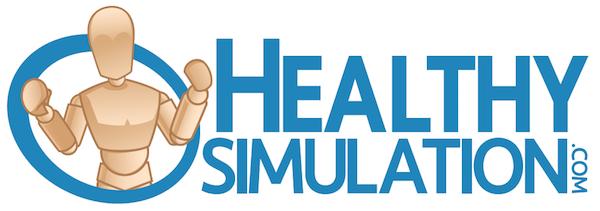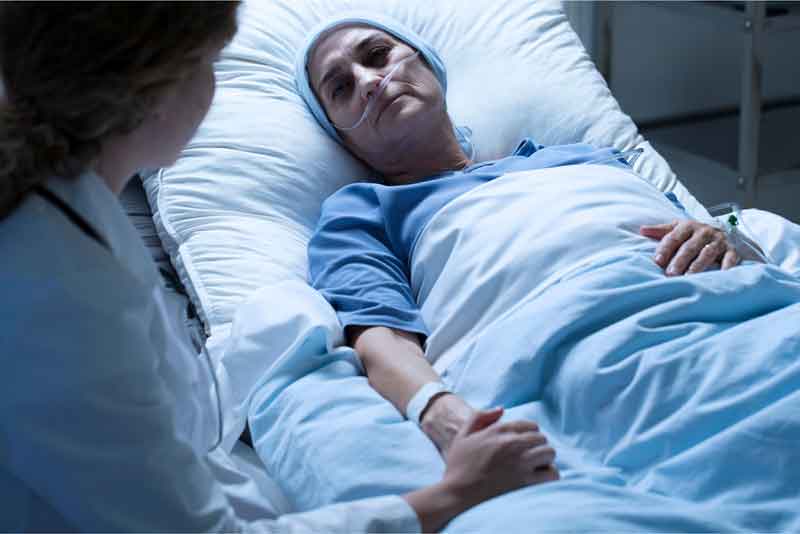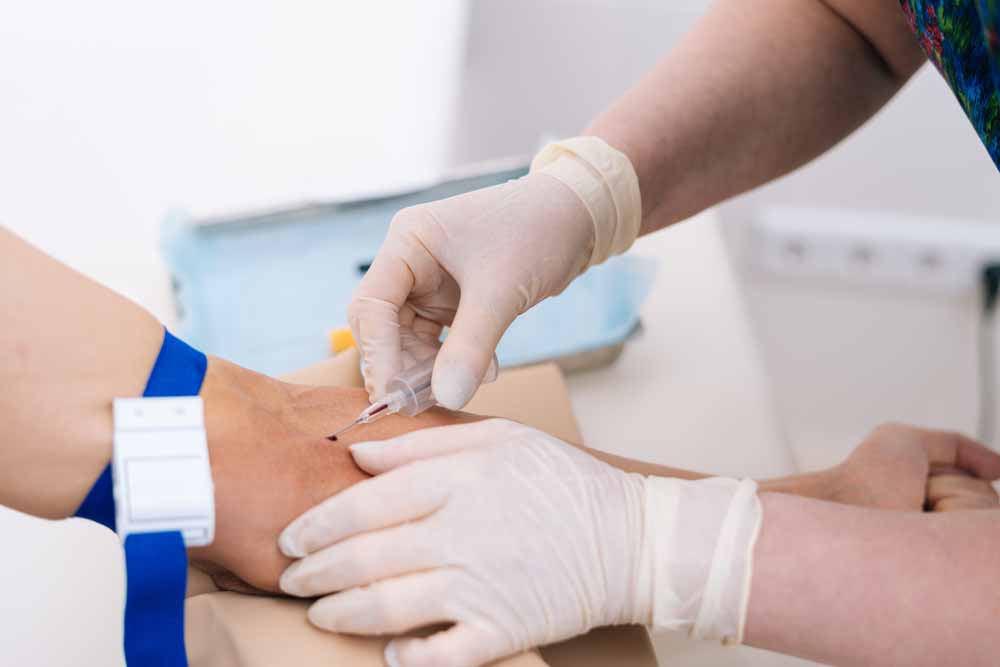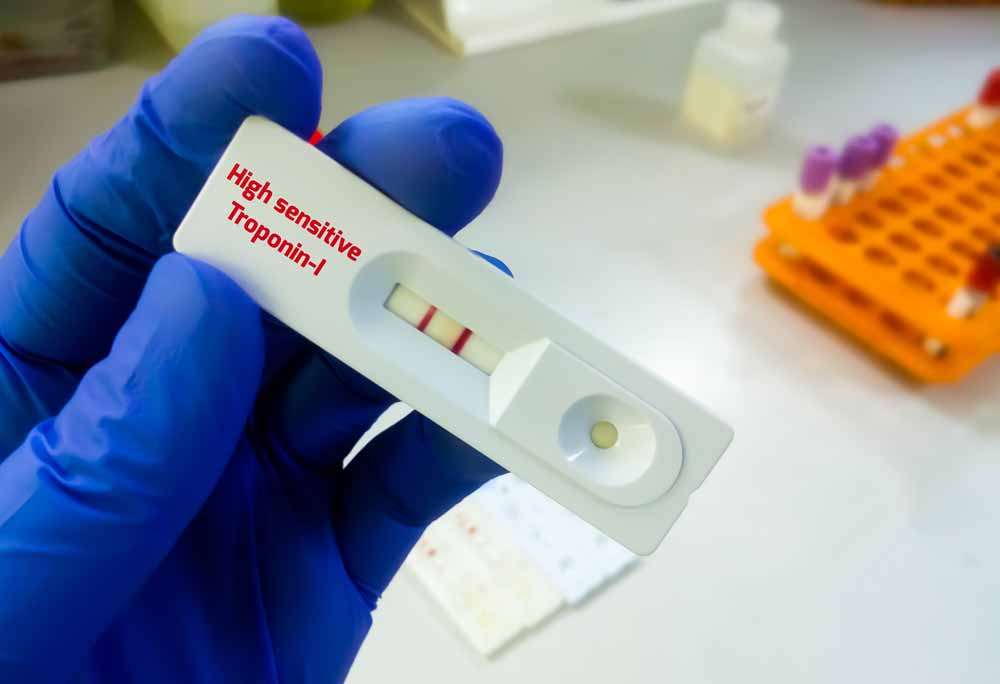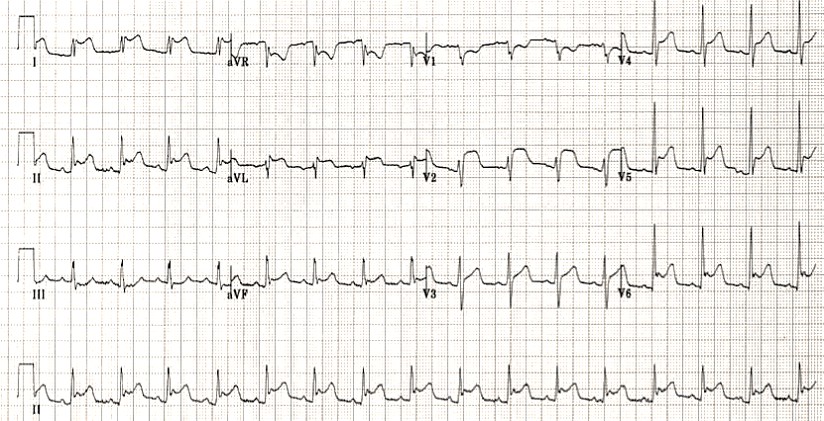The Glascow Coma Scale
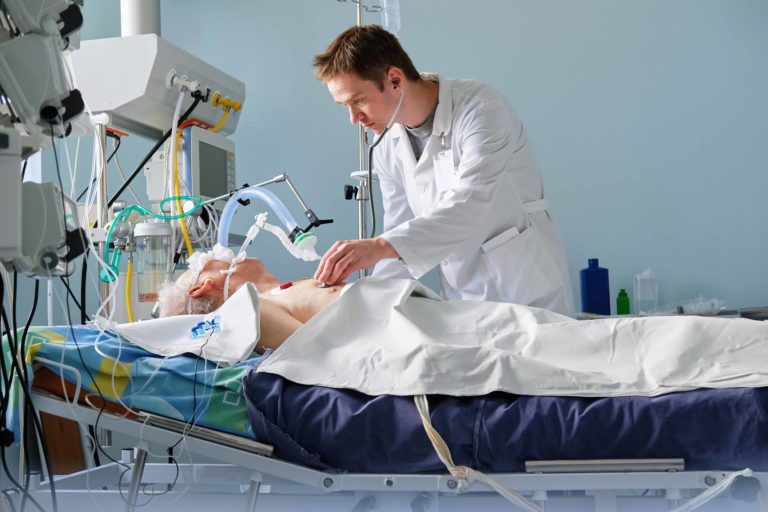
The Glascow Coma Scale, GCS is a scale for assessing impaired consciousness and coma in children older than 4 years and adults.
On the scale, the condition is assessed by the sum of points based on three parameters: Eye response (E – from 1 to 4), Verbal response (V – from 1 to 5) and Motor response (M – from 1 to 6). Thus, the minimum number of points is 3 (third degree coma), the maximum is 15 (clear consciousness).
Spontaneously
To verbal command
To pain
No eye opening
Oriented
Confused
Inappropriate words
Incomprehensible sounds
No verbal response
Obeys commands
Localizes pain
Withdrawal from pain
Flexion to pain
Extension to pain
No motor response
| Patient’s score | Patient’s assessment | Level of consciousness |
|---|---|---|
| 0 | 0 | 0 |
| Parameter | Response | Points |
| Eye response, E | Spontaneously | 4 |
| To verbal command | 3 | |
| To pain | 2 | |
| No eye opening | 1 | |
| Verbal response, V | Oriented | 5 |
| Confused | 4 | |
| Inappropriate words | 3 | |
| Incomprehensible sounds | 2 | |
| No verbal response | 1 | |
| Motor response, M | Obeys commands | 6 |
| Localizes pain | 5 | |
| Withdrawal from pain | 4 | |
| Flexion to pain | 3 | |
| Extension to pain | 2 | |
| No motor response | 1 |
In the Glasgow scale, clinical signs are differentiated according to their severity, which is reflected in points. To obtain information about the degree of change in consciousness, the points are summed up. The greater the sum of points, the less the degree of inhibition of brain function, and on the contrary – the less this sum, the deeper the coma.
| Levels of consciousness | GCS (in points) |
| Consciousness is clear | 15 |
| Moderate stun | 13-14 |
| Deep stun | 11-12 |
| Sopor | 9-10 |
| Coma I degree | 7-8 |
| Coma II degree | 5-6 |
| Coma III degree | 3-4 |
GCS designed for use in serial assessments of patients with coma from either medical or surgical causes. The GCS is commonly used in the pre-hospital and acute care setting as well as during hospitalization to evaluate mental status in both traumatic and non-traumatic clinical presentations.
In the care of an individual patient, the ratings of the three criteria in the Scale should be assessed, monitored, reported, and communicated separately.
The combined Score is an index of the severity impairment and is useful as a summary of a patient’s condition, in classifying groups of different severity and for triage. The Score cannot be calculated if one or other of the component criteria is not testable.
The GCS has been shown to have statistical correlation with a broad array of adverse neurologic outcomes, including brain injury, need for neurosurgery, impaired recovery and mortality.
Besides, the GCS has been incorporated into numerous guidelines and assessment scores (e.g. ACLS, ATLS, APACHE I-III, TRISS and WNS SAH Grading Scale).
In some patients, it may be impossible to assess one or more of the three components of the coma scale. The reasons include the next, but are not limited to:
- Eye: local injury and/or edema.
- Verbal: intubation.
- All (eye, verbal, motor): sedation, paralysis, and ventilation eliminating all responses.
If a component is untestable, a score of 1 should not be assigned. In this circumstance, summation of the findings into a total Glasgow Coma Score is invalid.
The 3 parts of the Glasgow Coma Scale are charted independently, and the position can be recorded as “NT” (not testable or not applicable –“NA”), with an option of indicating the reason, e.g. “C” for eye closure and “T” for intubation
The GCS score can be indicative of how critically ill a patient is.
Trauma patients presenting with GCS <15 warrant close attention and reassessment.
A declining GCS is concerning in any setting and should prompt assessment of the airway and possible intervention.
Conversely, a GCS of 15 should not be taken as an indication that a patient (trauma or medical) is not critically ill. Decisions about the aggressiveness of the management and treatment plans should be made based on clinical presentation and context and not in any way overridden by the GCS score.
Clinical management decisions should not be based solely on the GCS score in the acute setting.
If a trauma patient has a GCS ≤8 and there is clinical concern that they are unable to protect their airway or that they have an expected worsening clinical course based on exam or imaging findings, then intubation can be considered.
In any patient, a rapidly declining or waxing and waning GCS is concerning and intubation should be considered in the context of the patient’s overall clinical condition.
Clinical management decisions should not be based solely on the GCS score in the acute setting.
The Glasgow scale is usually written in this form: “GCS 8 = E1 V4 M3 at 07:35“.
For more information on assessing a patient on the Glasgow Coma Scale, visit the official website. https://www.glasgowcomascale.org/
LITERATURE:
Teasdale G, Jennett B.Assessment of coma and impaired consciousness. A practical scale. Lancet. 1974 Jul 13;2(7872):81-4 https://pubmed.ncbi.nlm.nih.gov/4136544/
Moore L, Lavoie A, Camden S, Le Sage N, Sampalis JS, Bergeron E, Abdous B. Statistical validation of the Glasgow Coma Score.J Trauma. 2006 Jun;60(6):1238-43; discussion 1243-4 https://pubmed.ncbi.nlm.nih.gov/16766966/
“Reith FC, Van den brande R, Synnot A, Gruen R, Maas AI. The reliability of the Glasgow Coma Scale: a systematic review. Intensive Care Med. 2016;42(1):3-15 https://pubmed.ncbi.nlm.nih.gov/26564211/
Teasdale G, Jennett B. Assessment of coma and severity of brain damage. Anesthesiology. 1978;49:225-226 https://pubmed.ncbi.nlm.nih.gov/686455/
Teasdale G, Jennett B, Murray L, Murray G. Glasgow coma scale: to sum or not to sum. Lancet. 1983 Sep 17;2(8351):678 https://pubmed.ncbi.nlm.nih.gov/6136811/
Healey C, Osler TM, Rogers FB, Healey MA, Glance LG, Kilgo PD, Shackford SR, Meredith JW. Improving the Glasgow Coma Scale score: motor score alone is a better predictor. J Trauma. 2003 Apr;54(4):671-8; discussion 678-80 https://pubmed.ncbi.nlm.nih.gov/12707528/
Green SM. Cheerio, laddie! Bidding farewell to the Glasgow Coma Scale. Ann Emerg Med. 2011 Nov;58(5):427-30. doi: 10.1016/j.annemergmed.2011.06.009. Epub 2011 Jul 30 https://pubmed.ncbi.nlm.nih.gov/21803447/
Middleton PM. Practical use of the Glasgow Coma Scale; a comprehensive narrative review of GCS methodology. Australas Emerg Nurs J. 2012 Aug;15(3):170-83. doi: 10.1016/j.aenj.2012.06.002. Epub 2012 Aug 3. Review https://pubmed.ncbi.nlm.nih.gov/22947690/
Yeh DD. Glasgow Coma Scale 40 years later: in need of recalibration? JAMA Surg. 2014 Jul;149(7):734. doi: 10.1001/jamasurg.2014.47. No abstract available https://pubmed.ncbi.nlm.nih.gov/24899079/
Teasdale G. Forty Years on: Updating the Glasgow Coma Scale. Nursing Times. 2014; 110(42) https://cdn.ps.emap.com/wp-content/uploads/sites/3/2014/10/141015Forty-years-on-updating-the-Glasgow-coma-scale.pdf
Gill M, Windemuth R, Steele R, Green SM. A comparison of the Glasgow Coma Scale score to simplified alternative scores for the prediction of traumatic brain injury outcomes. Ann Emerg Med. 2005 Jan;45(1):37-42 https://pubmed.ncbi.nlm.nih.gov/15635308/
Haukoos JS, Gill MR, Rabon RE, Gravitz CS, Green SM. Validation of the Simplified Motor Score for the prediction of brain injury outcomes after trauma. Ann Emerg Med. 2007 Jul;50(1):18-24. Epub 2006 Nov 16 https://pubmed.ncbi.nlm.nih.gov/17113193/
Thompson DO, Hurtado TR, Liao MM, Byyny RL, Gravitz C, Haukoos JS. Validation of the Simplified Motor Score in the out-of-hospital setting for the prediction of outcomes after traumatic brain injury. Ann Emerg Med. 2011 Nov;58(5):417-25. doi: 10.1016/j.annemergmed.2011.05.033. Epub 2011 Jul 30 https://pubmed.ncbi.nlm.nih.gov/21803448/
Teasdale G, Maas A, Lecky F, Manley G, Stocchetti N, Murray G. The Glasgow Coma Scale at 40 years: standing the test of time. Lancet Neurol. 2014;13(8):844-54 https://pubmed.ncbi.nlm.nih.gov/25030516/
Register on our website right now to have access to more learning materials!
ClinCaseQuest Featured in SchoolAndCollegeListings Directory
Exciting News Alert! We are thrilled to announce that ClinCaseQuest has been successfully added to…
We presented our experience at AMEE 2023
AMEE 2023 took place from 26-30 August 2023 at the Scottish Event Campus (SEC), Glasgow,…
We are on HealthySimulation – world’s premier Healthcare Simulation resource website
We are thrilled to announce that our Simulation Training Platform “ClinCaseQuest” has been featured on…
Baseline Cardiovascular Risk Assessment in Cancer Patients Scheduled to Receive Cardiotoxic Cancer Therapies (Anthracycline Chemotherapy) – Online Calculator
Baseline cardiovascular risk assessment in cancer patients scheduled to receive cardiotoxic cancer therapies (Anthracycline Chemotherapy)…
National Institutes of Health Stroke Scale (NIHSS) – Online calculator
The National Institutes of Health Stroke Scale (NIHSS) is a scale designed to assess the…
SESAM 2023 Annual Conference
We are at SESAM 2023 with oral presentation “Stage Debriefing in Simulation Training in Medical…



